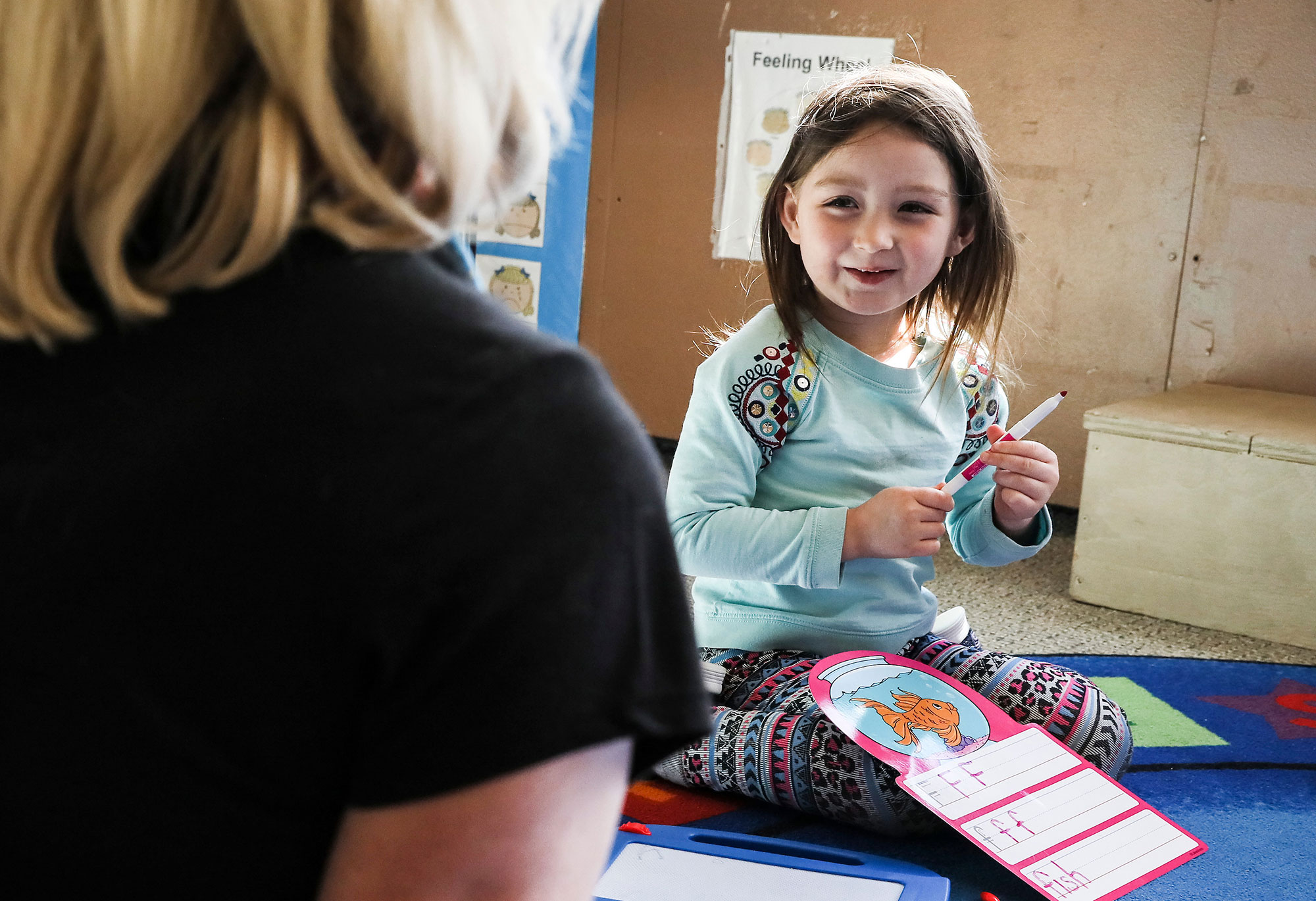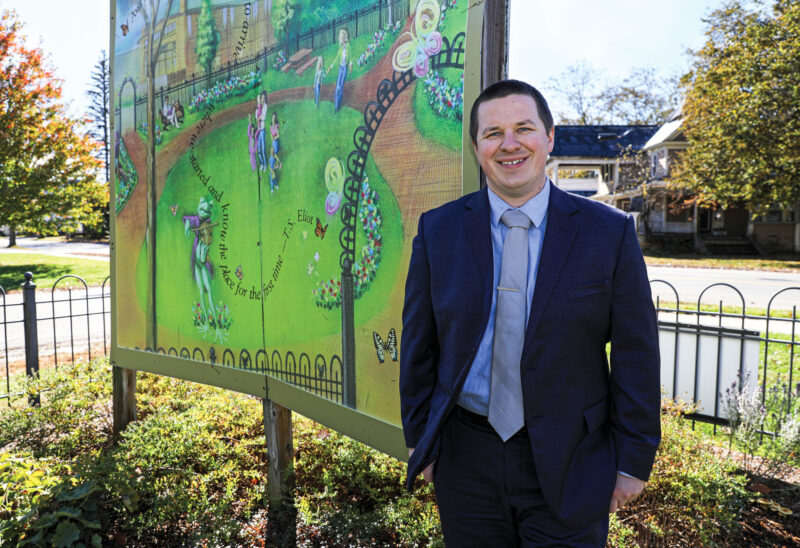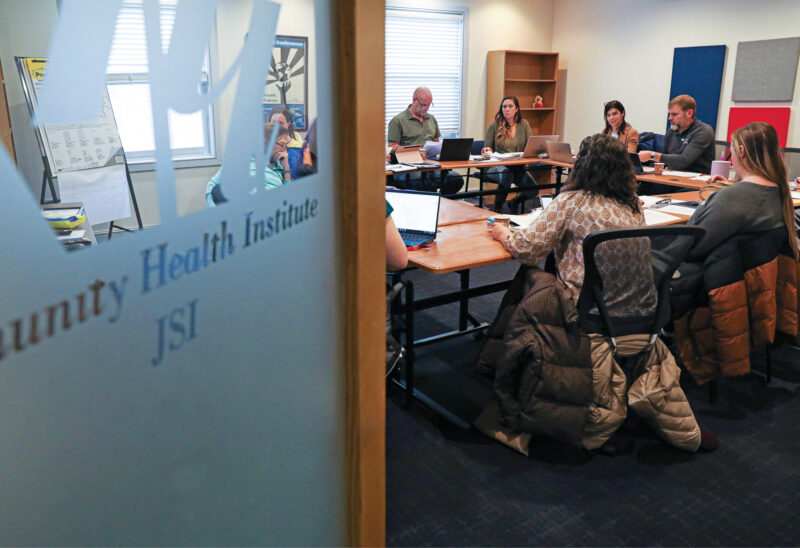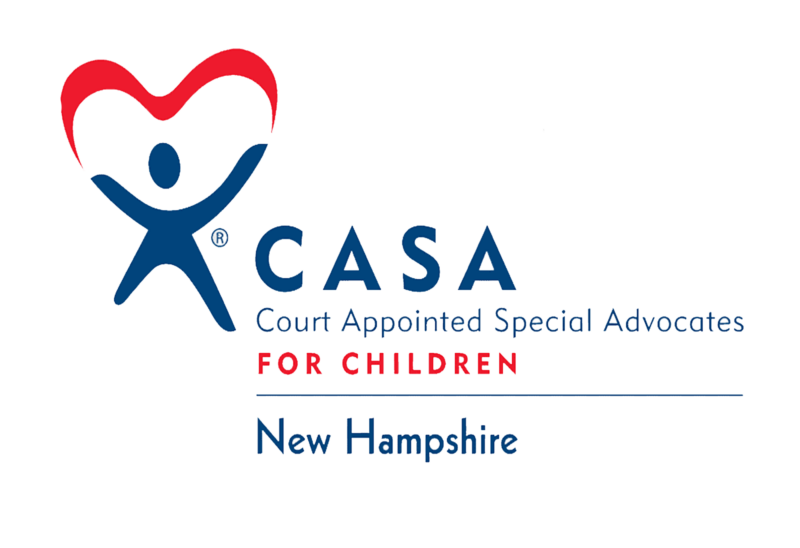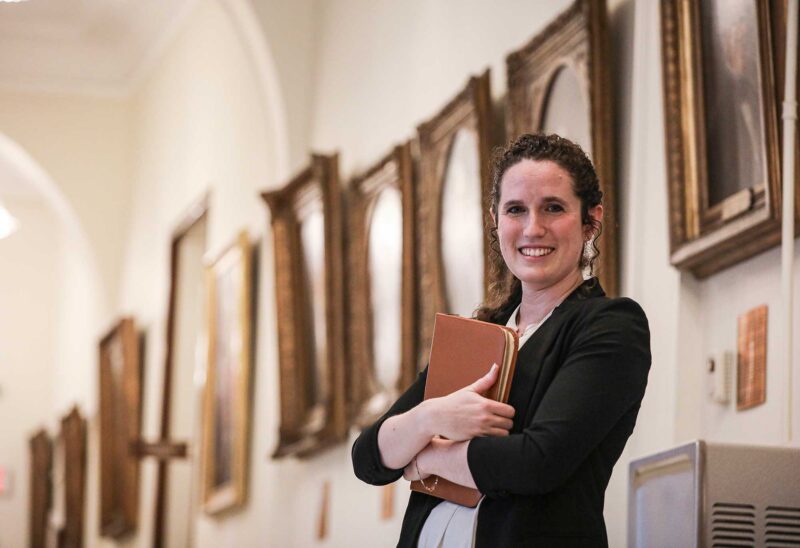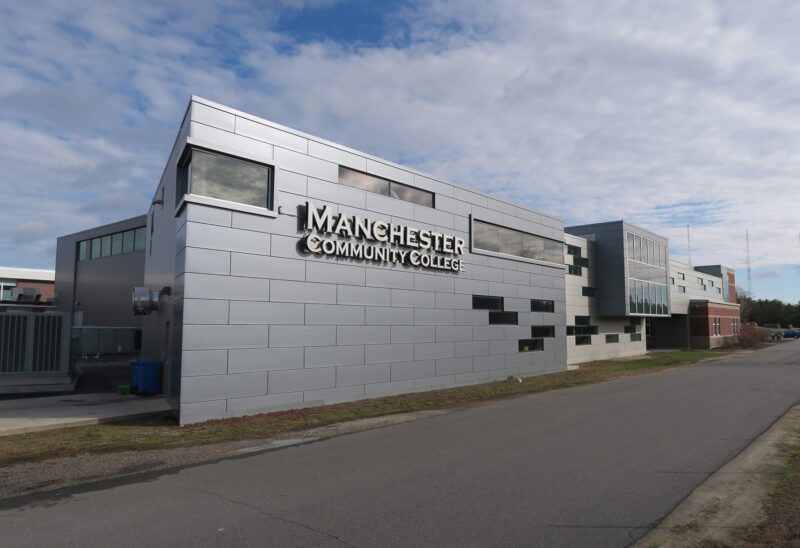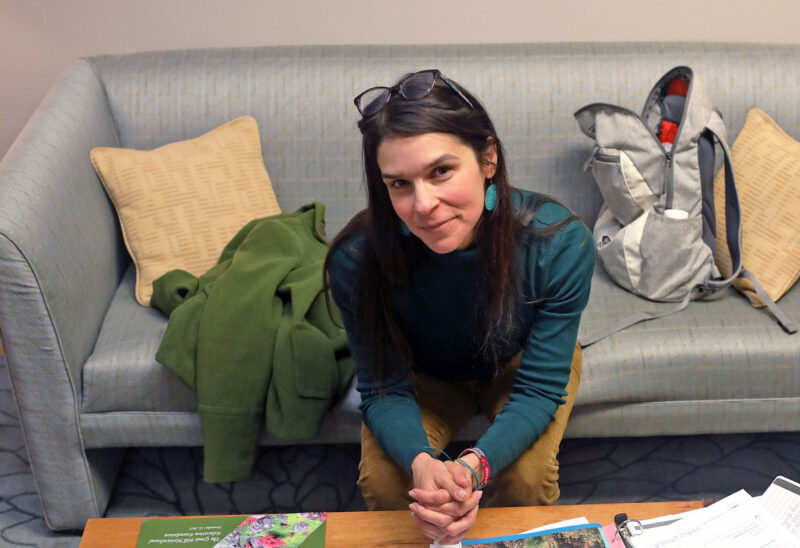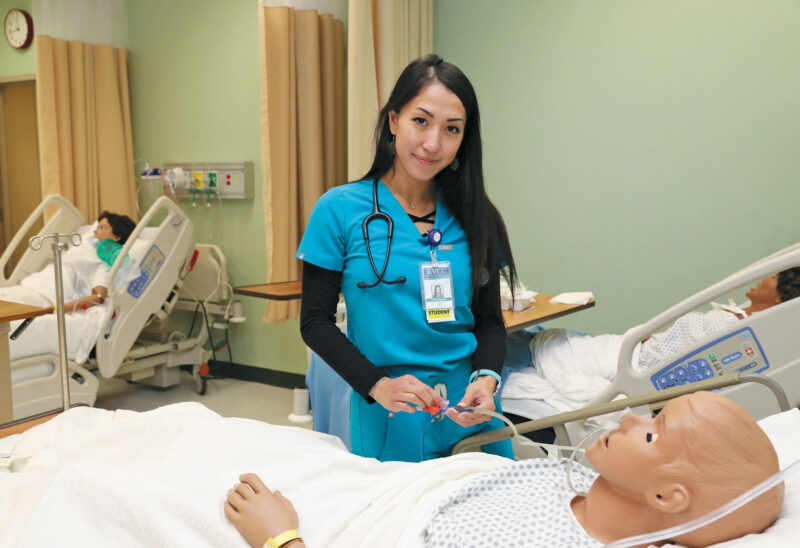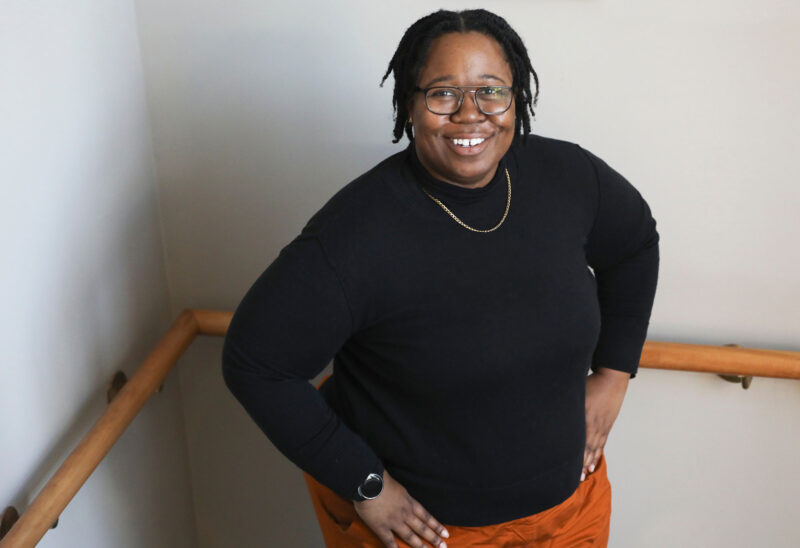When the Charitable Foundation launched its “New Hampshire Tomorrow” initiative to help more New Hampshire kids thrive, Barbara and Dick Couch wanted to do something big to help improve outcomes for young children in New Hampshire. The longtime owners of Hypertherm in the Upper Valley were well-read in the literature showing that a strong early start set children up for all future success — and they decided to invest in that strong start for New Hampshire’s kids.
Their gift, made from the Couch Family Foundation, spurred the Charitable Foundation to hire Christina Lachance as its first director of Early Childhood and Family Initiatives. In her 3-1/2 years in that position, Lachance leaned into that work with a combination of impatience and grace — and helped push statewide policy change and investments, build coalitions and secure significant federal funding to help improve outcomes for young children. She recently joined the University of New Hampshire as the first director of the newly formed New Hampshire Council for Thriving Children. That position places her in a central role to continue the work.
“I am honored to step into this role on behalf of New Hampshire’s children,” Lachance said. “We have seen people from all sectors really coming together on this issue in recent years, and even with the increased challenges we all are facing right now, I am incredibly optimistic that we can continue the forward momentum.”
The Council, created by an executive order of Gov. Christopher Sununu, is a joint endeavor of the New Hampshire Department of Education and the Department of Health and Human Services. Its primary initial mission will be to guide the distribution of a $27-million federal grant to improve preschool and early childhood services in New Hampshire. Funding is slated to expand early-learning programs in rural areas, support the state’s network of family resource centers, support technical assistance and quality assessment for early-childhood programs and more.
Building on a solid foundation
There is a metaphor employed in the early-childhood development field that early learning and development lays the foundation for everything that will come later. Only on a solid foundation can sills and joists and framing be added that will make for a structurally sound house.
When the Charitable Foundation launched New Hampshire Tomorrow in 2015 and made early-childhood development a major area of focus, decades of work had gone into building a foundation for early-childhood in New Hampshire: there was good research and communications about early-brain development, a committed and professional group of teachers and advocates, funders who had been investing in the field. The foundation had been poured.
The Foundation’s early-childhood position was modeled after a similar post directing the Foundation’s work on preventing substance use disorders — also made possible by a generous gift.
Lachance, who holds an advanced degree in early childhood, is a former vice president of children’s services and oral health at Easter Seals New Hampshire and has directed a Head Start program. She immediately built relationships, created partnerships and crafted a strategy to move the work forward.
Advocacy works
Advocacy has been a cornerstone of the Foundation’s early-childhood strategy.
A major combined investment from the Charitable Foundation, Endowment for Health, New Hampshire Children’s Health Foundation and Annie E. Casey Foundation allowed the nonprofit New Futures to expand its advocacy mission to include both health care and early-childhood. The organization, which had been founded in 1997 as a result of a gift to the Charitable Foundation, had as its original and single mission the reduction of substance use in the state. Now, its mission expanded significantly.
In collaboration with Moms Rising, Spark-NH, the NH Children’s Trust, Child Care Aware NH of Southern New Hampshire Services, Save the Children Action Network and many other organizations, New Futures coordinated advocacy efforts on behalf of young children, achieving some significant policy wins:
The partners were instrumental in securing a $15 million appropriation for child care scholarships, ensuring continuity of high-quality early childhood care for children whose families would otherwise not be able to afford it; and the partners advocated successfully for passage of additional state funding for full-day kindergarten programs.
New Futures was pivotal in bringing parents, providers and organizations together to secure bipartisan support for opening access to quality home-visiting programs to thousands of New Hampshire families who qualify for Medicaid. Quality home-visiting programs for expecting parents and young families have been shown to improve birth outcomes, parenting skills and school readiness and to improve high school graduation rates for mothers.
New Futures also took a lead advocacy role for a new funding model that allows the even the smallest of the state’s family resource centers to receive training, technical assistance and support through a facilitating organization, improving centers’ ability to provide families with a range of services — from prenatal and parenting classes to programs for grandparents raising children.
Strengthening regional coalitions
Regional early-childhood coalitions — like LAUNCH Manchester — have also been strengthened.
LAUNCH, which received a $175,000 bridge grant from the Foundation, has been building a coordinated system of services and care to make sure that every one of Manchester’s kids has the social and emotional supports she needs to learn, and thrive and grow: Developmental screening that leads to earlier interventions; behavioral health care as a routine part of pediatric visits; professional coaching and development for early childhood teachers; a rapid-response team to respond when children are affected by violence or other trauma; improved home visiting services and more. (That bridge grant led to the LAUNCH Manchester Strategic Plan for Young Children and supported the organization in securing more than $2.8 million in local, state, and federal funds to implement the priorities of that plan.)
The Foundation’s Neil and Louise Tillotson fund has supported similar work for young children in Coös County for more than a decade, and grants have supported additional regional coalitions around the state.
Key public-private partnerships
Under Lachance’s leadership in early childhood, the Foundation worked in close partnership with partners in the public sector and those doing the direct work of educating young children.
One major point of progress was the preschool development grant that Lachance will now help to guide: Foundation investment and leadership, in conjunction with the work of other partners, helped the state secure that $26.7 million in federal funding, which will be disbursed over three years.
In some cases, grant strategy included facilitating change in the way long-standing systems operated.
Funding to the University of New Hampshire helped bring partners, including the state Departments of Education and Health and Human Services, together for early childhood “collective visioning” conversations led by New Hampshire First Lady Valerie Sununu.
“It was key that the New Hampshire Charitable Foundation with the First Lady and UNH helped provide a forum to have these collective visioning conversations,” said Christine Tappan, former associate commissioner of the state Department of Health and Human Services. “A consultant came in who was quite provocative in getting us into some deep conversations about how would we coordinate systems better.” Tappan said those conversations led directly to the state applying for the federal preschool grant.
A Foundation grant to the Harvard Kennedy School of Government Performance Lab has helped support four full-time, embedded staff at DHHS and the state’s Division of Children, Youth and Families to help the state design and implement initiatives to help prevent maltreatment of children and help children and families thrive.
To improve the lives of children, focus also needs to be placed on helping their parents succeed. Recognizing this, the Foundation invested in the development of a “Whole Families” workgroup to represent New Hampshire in a New England-wide learning collaborative. Tappan, along with business leaders, parents and early-childhood professionals took part. Now, a new state working group is developing New Hampshire’s “Whole Family Approach to Jobs — Parents Working and Children Thriving” initiative to improve economic mobility for struggling families. Lachance remains deeply involved in that effort.
Working with philanthropic partners, including the Charitable Foundation, the Endowment for Health and the New Hampshire Children’s Health Foundation, became “part of the momentum” for change in the early-childhood landscape, Tappan said.
The Couches, who made the initial gift that supported much of the work, are optimistic about the progress that has been made.
“It brings us hope that this recent spotlight placed on the early-childhood education and care system will bring about the systemic changes that have been needed over time,” Barbara Couch said.
“Philanthropy shouldn’t take the place of government, by any means, but I think it has a place in innovation and allowing for new ideas and experiments to come to life.”
Challenges remain
When the COVID-19 public-health crisis hit, the Foundation worked with the state to quickly establish an emergency child care collaborative that kept emergency centers open so they could care for the children of essential workers — and to get those centers the supplies and resources they needed to do so.
If anyone remained unclear about how important the care of young children is to the state’s economy, the COVID-19 crisis added a sharp and sudden clarity.
“I think the pandemic has served as a diagnostic dye for some of the problems that those of us that have worked in the field for a long time have known and advocated around,” said Lara Quiroga, director of LAUNCH Manchester.
Members of New Hampshire’s congressional delegation have been meeting in recent weeks with early-childhood care and education providers, along with state officials and others, to get input on needs as early-childhood education centers work to build back in the wake of the COVID-19 pandemic.
“I am so proud of the Charitable Foundation for focusing on early childhood,” said Congresswoman Ann McLane Kuster, a former Foundation board member who represents New Hampshire’s second district.
“COVID-19 has pulled back the curtain to expose a very vulnerable conundrum for hardworking New Hampshire families,” Kuster said. Insufficient governmental and business investment in early childhood education has left the burden on individual families, she said, to be subsidized by early-childhood educators who work for wages that are far too low. “Think of all the other types of infrastructure that we put in place for the benefit of our economy and communities — the roads and bridges and highways and broadband communication and postal services — all meet the need of businesses so our economy will excel. And yet the one piece that was left solely on the shoulders of the individual families is now coming unraveled, and businesses are really scrambling.”
Even before the pandemic struck, forcing early-childhood center closures — including some important centers in New Hampshire for the training of early-childhood educators — plenty of room remained for progress.
New Hampshire is just one of five states without any state spending for pre-kindergarten programs. Quality is uneven, and availability of quality child care is at a premium. The cost of child care in some places rivals the cost of college tuition. And research has shown that, nationally, child care is least affordable for Black and Latinx families with low incomes.
Pay for early-childhood teachers is a perennial problem: Nationwide, nearly half of early-childhood professionals make little enough that they qualify for food stamps.
As the state begins to recover from the COVID crisis, availability threatens to be even more limited, as many centers have succumbed to the economic impacts of the shutdown and closed their doors for good. A “build it back stronger” movement is coalescing among early-childhood advocates.
“We want to make sure we are responding as a pandemic requires — but also not forgetting that there should be a long-term vision for not just sustaining early childhood but making it better,” Quiroga said. “Because going back to how it was…I don’t think we can accept that. We can’t have an industry that perpetuates people living in poverty. We have to have a system that supports working families.”
Looking ahead
The Charitable Foundation remains a committed partner in the field.
“We’re in this for the long haul,” said Foundation president and CEO Richard Ober. One place the Foundation will continue to focus efforts is on equity in early learning.
“We want to help make sure that all young children in New Hampshire — regardless of race, family income or ZIP code — have access to great early-childhood care and education,” Ober said. “Because we all know how foundational that is to all of the learning that comes later, and to all future success. A strong early-childhood system will make our communities and our economy stronger.”

